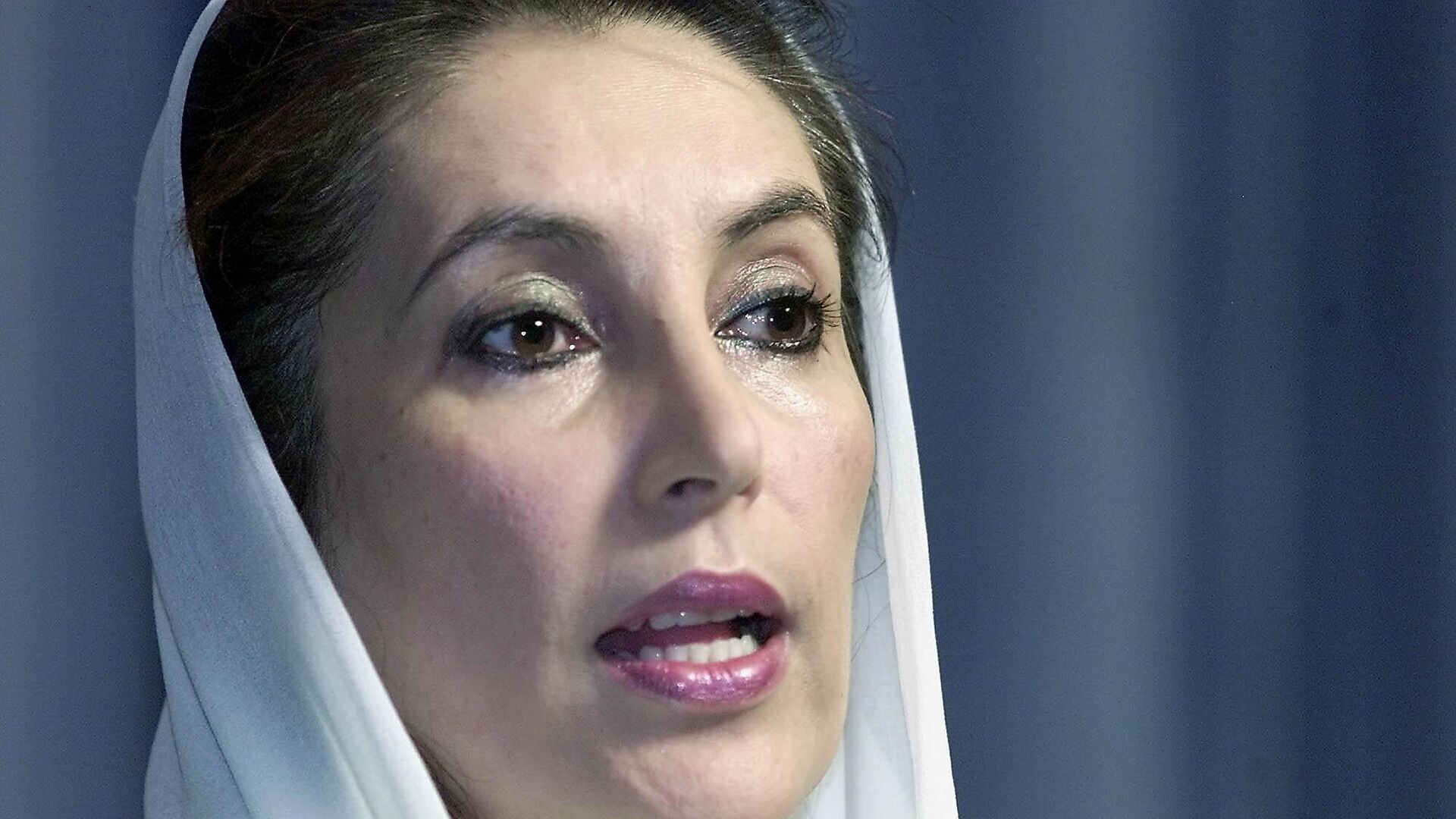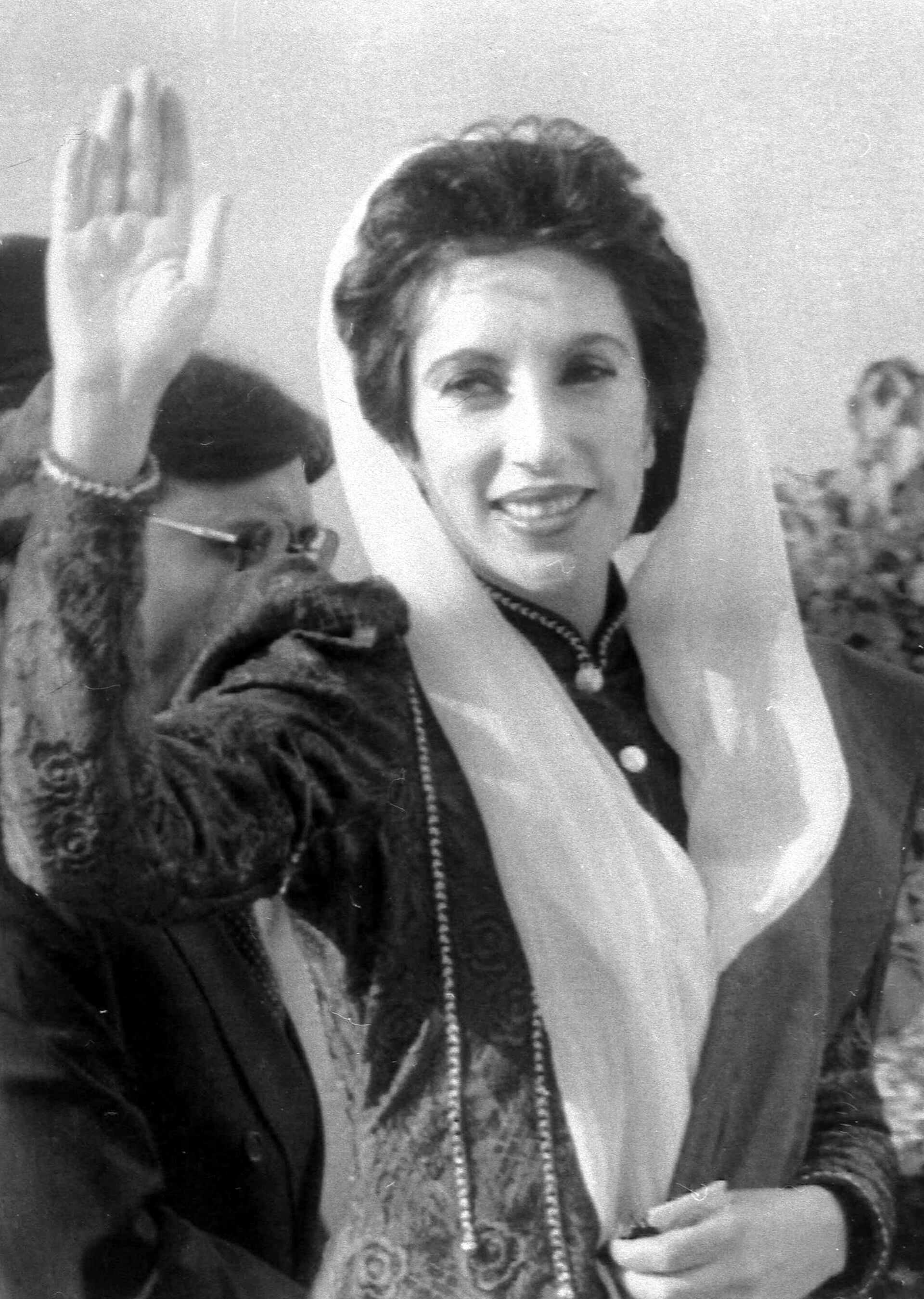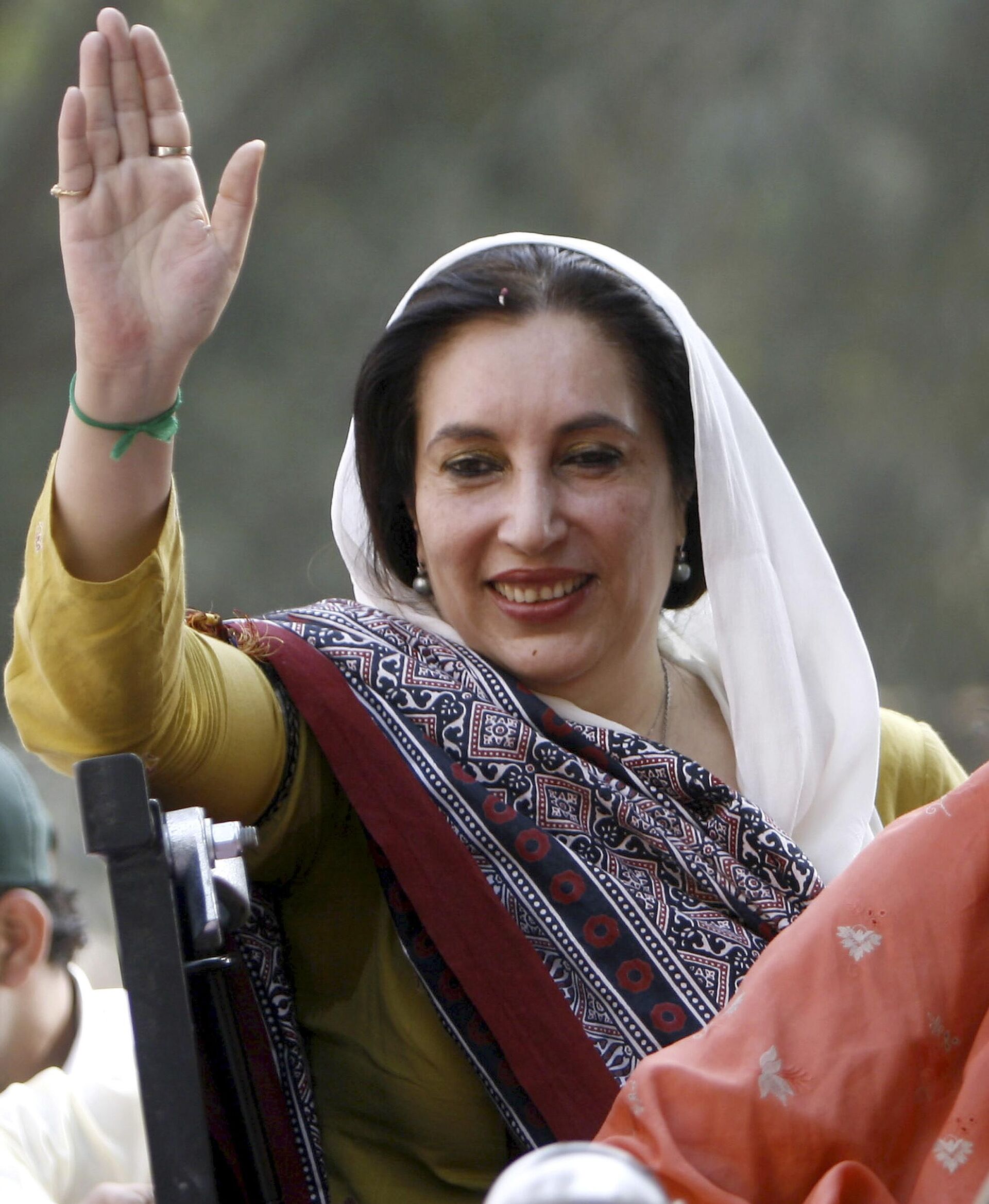Remembering 'Daughter of the East,' Pakistan's First Woman PM Benazir Bhutto
19:08 29.12.2022 (Updated: 19:43 29.12.2022)

© AP Photo / CHUCK BURTON
Subscribe
December 27 marked 15 years since Benazir Bhutto was assassinated in broad daylight after a rally in Rawalpindi. Mystery still surrounds her untimely death, but Bhutto's legacy lives on through her political party.
On December 27, 2007, the former Pakistani prime minister and first democratically elected female leader of a Muslim country was assassinated at the age of 54.
Bhutto had spent three decades struggling to stay afloat in Pakistani politics.
For many people in Pakistan, she represented the strongest hope for democratic and egalitarian leadership in a country divided by political corruption and Islamic extremism.
Two days ago, many political leaders, including Prime Minister Shehbaz Sharif, ex-PM Imran Khan, as well as other politicians, family members, and well-wishers took to Twitter in memory of the slain former prime minister.
Benazir Bhutto, lovingly known as BB, was a highly respected and influential figure in Pakistani politics, known for her leadership and vision for the betterment of the Pakistani people.
Political Career & Legacy of Benazir Bhutto
Born into an affluent family of Sindhi landowners, Benazir grew up in Karachi and later studied at Oxford and Harvard Universities, receiving degrees in political science, philosophy, economics, and international law.
She rubbed shoulders with the global political elite as she followed in her father's footsteps, Zulfikar Ali Bhutto.

Benazir Bhutto waves to supporters outside the Presidential Palace in Islamabad after being elected as Prime Minister of Pakistan, Oct. 19, 1993. (AP Photo/B.K. Bangash)
© AP Photo / B.K. Bangash
Benazir Bhutto was appointed head of her father’s party, the Pakistan People’s Party (PPP), after his execution in 1979.
She faced frequent house arrests, and was forced to go into exile from 1984 to 1986, but returned to Pakistan after martial law was lifted and soon became a leader in the political opposition to the military dictator, Muhammad Zia-ul-Haq.
On December 1, 1988, at just 35 years of age, Benazir Bhutto became Pakistan's first female prime minister and the head of its first civilian government since the dissolution of her father, Zulfikar Ali Bhutto's government in 1977.
Benazir became the first high-ranking female politician in the whole Muslim, which earned her the nickname the "Daughter of the East."
During her first tenure as prime minister, just two years later, Bhutto’s PPP suffered a defeat in the national elections of October 1990, and she led parliamentary opposition against her successor, Nawaz Sharif.
In the elections held in October 1993, the PPP won a plurality of votes and succeeded in winning against Sharif’s Pakistan Muslim League (PML-N) party in every province.
Benazir Bhutto's second term as prime minister was highly celebrated. It was known as a democratic period for the country, as she made progress in Pakistan’s relations abroad, attracted foreign investment in the country, and put in place a number of important social programs. Moreover, she had an important ally in the president, Farooq Leghari, who was a member of the PPP.
Nevertheless, despite her efforts, Pakistan's economy, law, and order remained at a low point and in the 1997 elections, Bhutto’s PPP suffered a decisive loss to Sharif’s PML-N.
In the next few years, Benazir was forced into exile due to corruption charges that were brought forward by Nawaz Sharif's party against her and her husband, Asif Ali Zardari. They faced allegations of various forms of financial misconduct, including accepting multimillion-dollar kickbacks and laundering money through Swiss banks.
Despite denying the allegations, Zardari was sentenced to eight years in prison, while Bhutto lived in exile in London and Dubai with the couple’s three children. In 2007, Benazir was finally able to return home to Karachi, after President Pervez Musharraf dropped the charges against her after enduring much pressure from PPP supporters.
Her return was much anticipated by members and supporters of the PPP party.
However, on the day of her arrival, she narrowly escaped a suicide bomb attack on her convoy that killed at least 136 people and injured more than 450.

Pakistan’s opposition leader Benazir Bhutto waves to her supporters as she arrives at city court to submit her nomination papers for parliamentary election, Monday, Nov. 26, 2007 in Larkana, Pakistan.
© AP Photo / Shakil Adil
This attack did not deter Benazir from campaigning in the upcoming parliamentary elections. Alas, the second attack put an end to her life. Following her death, party leadership fell to her husband, Asif Ali Zardari, and later to their son, Bilawal Bhutto Zardari.
Bilawal Bhutto Zardari is the current foreign minister of Pakistan.
Who Killed Benazir?
Bhutto was assassinated by a 15-year-old suicide bomber called Bilal. She had just finished an election rally in Rawalpindi when he approached her convoy, shot at her with a gun, and then blew himself up.
According to numerous accounts, Bilal had been groomed into blowing himself up by the Pakistani Taliban.
At the time of her death, Bhutto was rallying in a bid for a third term as prime minister. Her untimely death caused widespread civil unrest in Pakistan. Bhutto's supporters took to the streets, putting up roadblocks, lighting fires, and chanting slogans.
Just a few weeks after her assassination, five suspects confessed to helping Bilal kill Bhutto on orders from the Pakistani Taliban (Tehreek-e-Taliban Pakistan)* and al-Qaeda*.
Aitzaz Shah, Rasheed Ahmed, and Sher Zaman confessed that they were mid-ranking organizers of the murder and two Rawalpindi-based men, Hasnain Gul and Rafaqat Hussain, told the authorities that they provided accommodation to Bilal the night before the killing.
A decade later, ex-President General Pervez Musharraf in a TV interview suggested that people in the establishment could have been involved in Bhutto's murder.
Asked whether rogue elements within the establishment could have been planning the killing with the Taliban, General Pervez Musharraf replied, "Possibility. Yes indeed. Because society is polarized on religious lines."
It was a shocking statement from a former Pakistani head of state, because military leaders in Pakistan often deny any hint of state collusion in violent jihadist attacks.
The views and opinions expressed in this column are those of the author and do not necessarily reflect the position of Sputnik.
* terrorist organizations banned in Russia

